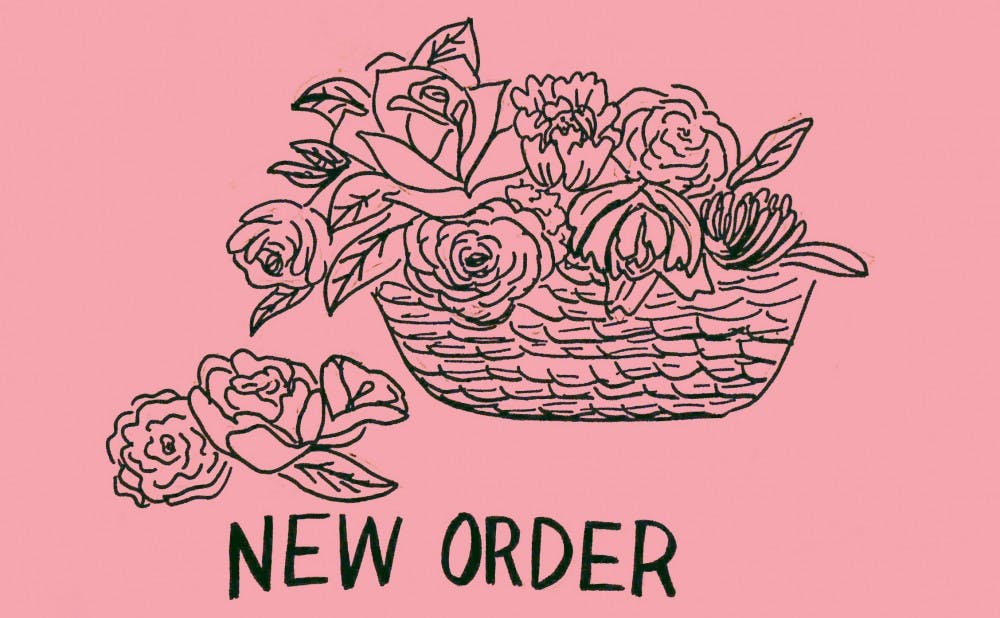My vision of the '80s, a decade that began and ended years before my life did, begins and ends with “Age of Consent.”
This single from New Order, the lead track on their 1983 album “Power, Corruption & Lies,” first came to me late in high school. In hindsight, it was probably the perfect time to come across this '80s record: My imagination of what high school ought to be like, after all, was painted by the cultural byproducts of that decade, all Reagan-era sweaters, nighttime drives and breakfast clubs. But I hadn’t yet found a suitable musical counterpart to go along with those nostalgic tropes.
“Age of Consent” filled that void, appearing to me as if it were the soundtrack to some John Hughes movie that never made it beyond the cutting room floor, running during the final credits in the place of O.M.D. or Simple Minds. (And doing it just a little better than either of those acts could.) From my vantage point, situated squarely in the 2010s, the track became the avatar, to borrow a turn of phrase from James Murphy—a New Order acolyte himself—for my “borrowed nostalgia for the unremembered '80s.” Unlike Murphy, I couldn’t say that I was there, but traversing the veins of suburbia to the motorik rumble of “Age of Consent,” I could pretend to have been, or at the very least imagine a phantom version of myself who was.
For a long time before then, I knew New Order as nothing more than a footnote in the proverbial Wikipedia page of its predecessor, Joy Division, an afterthought compared to the myth-making (forever immortalized, like those flowers on the cover of “Power, Corruption & Lies,” by Urban Outfitters) that followed lead singer Ian Curtis’s untimely death. But an exploration of New Order’s discography, from their underrated 1981 debut “Movement,” which bore more than a trace of the former band’s DNA, to the sporadic releases that have come since their 1980s heyday, reveals a band that has crafted its own, distinct legacy. Perhaps more than their full-length albums, too, New Order mastered, better than most contemporaries, the art of the single; many of their greatest-hits candidates, like “Ceremony,” “Temptation” and “Blue Monday,” didn’t appear at first on long-playing releases, coming instead as 7- or 12-inch singles.
Few of these dispatches from the early- to mid-1980s attain the uninhibited pathos of “Age of Consent,” but they adhere to the same aesthetic that guides so many of the band’s tracks from that period. New Order makes pop music at its most abstract. A great many of their songs, “Age of Consent” included, alternate solely between a I and a IV chord, a progression that, in its elemental simplicity—the base of the first chord remains constant—creates the illusion of forward motion. (It’s the same formula that makes David Bowie’s “‘Heroes’” so powerful.) Guitar solos, if they can be called that, flit between two or three notes. And lead singer Bernard Sumner’s lyrics reveal only impressions, intimations of desire and longing, directed at an unspecified “you.”
Because of this, New Order songs tend to hold their subject at arm’s length. They resist resolution, be it lyrical, emotional or melodic. Even the certified bangers in New Order’s collection have the strange quality of leaving something to be desired. The version of “Bizarre Love Triangle” that appears on 1986’s “Brotherhood,” for example, despite being arguably the most overt, in-your-face-catchy track from the band, still seems to be missing that star-scraping chorus that would completely envelop the listener (and might have launched it into the Top 40). In New Order’s world, satisfaction is rarely attained. The songs, in their union of guitars and samplers, man and machine, seem to be grappling with their own limitations of expression, as if locked in a search for a corporeal form.
New Order has always been as much an idea as a physical band, anyway. Shunning interviews, limiting their live performances and marking their releases with Peter Saville’s minimalist art, the group is notorious for its “non-image,” a style cultivated equally by the content of their music. So it’s fitting that their songs would be vehicles for an idea of a decade in which I was never alive. “Age of Consent” is the sound of nostalgia, its subject incomplete and wanting—and, maybe, never really there in the first place.
Memory—particularly that of a wholly unremembered time—cannot help but be imperfect and distorted, only amounting, at best, to a flimsy simulation of the real thing. That’s why my unremembered '80s, pieced together as it were by the culture I’ve consumed and the mythologies I’ve inherited, must fall short. New Order hints at romance, at driving around, at some quintessential prom night, but they understand that, like a borrowed nostalgia, you can never quite grasp it.
Get The Chronicle straight to your inbox
Signup for our weekly newsletter. Cancel at any time.

